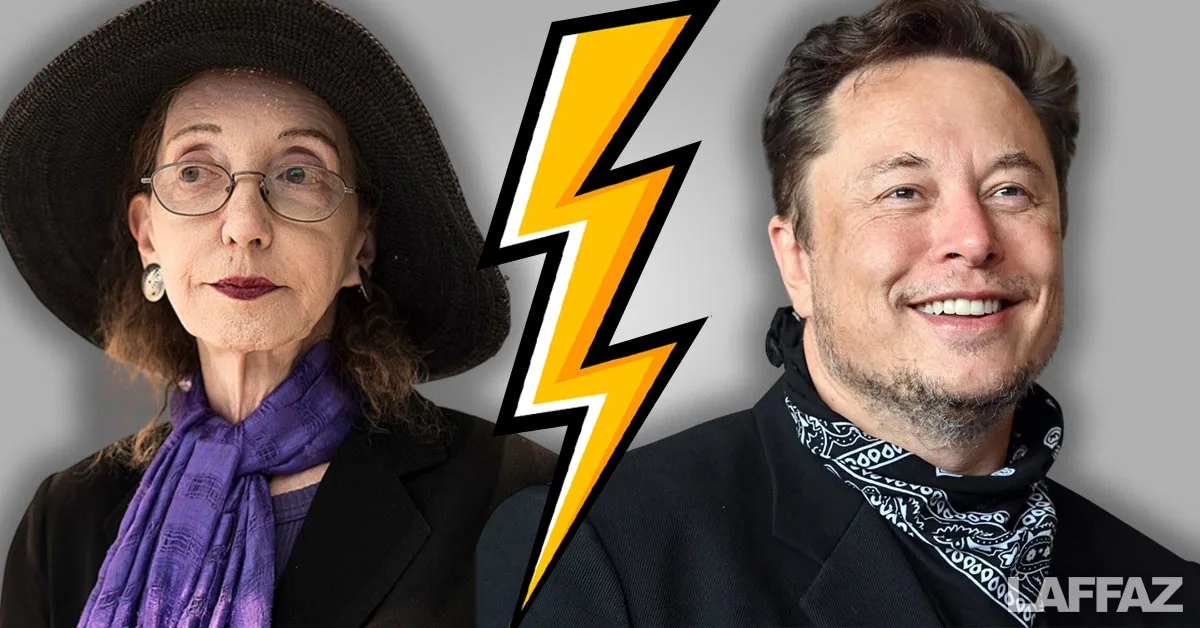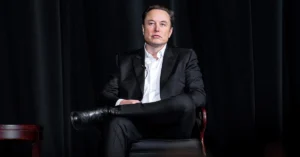Acclaimed novelist Joyce Carol Oates sparked a social media storm this week after she criticized Elon Musk on X (formerly Twitter), calling him “uneducated” and “uncultured.” The Tesla and SpaceX CEO swiftly hit back, reigniting debate over Musk’s online persona and the cultural divide between artists and technologists.
“So curious that such a wealthy man never posts anything that indicates that he enjoys or is even aware of what virtually everyone appreciates— scenes from nature, pet dog or cat, praise for a movie, music, a book (but doubt that he reads); pride in a friend’s or relative’s accomplishment; condolences for someone who has died; pleasure in sports, acclaim for a favorite team; references to history,” Oates wrote
“In fact he seems totally uneducated, uncultured. The poorest persons on Twitter may have access to more beauty & meaning in life than the ‘most wealthy person in the world.'” she added
The post quickly went viral, with thousands of replies and quote-tweets dissecting her remarks.
Musk responded within hours, firing off a series of pointed replies.
“Oates is a liar and delights in being mean. Not a good human,” Musk wrote.
“Eating a bag of sawdust would be vastly more enjoyable than reading the laboriously pretentious drivel of Oates.” Musk added in an another post.
How the exchange began
The exchange followed discussions about Musk’s recent promotion of Grok Imagine – a new AI-powered creative tool from his company xAI that generates short, stylized videos. Some users had mocked the project for lacking emotional depth, which commentators believe prompted Oates’s comment about beauty and meaning.
Social media users and journalists speculated that Oates was reacting less to Musk’s wealth and more to his perceived disinterest in art and culture. Many noted that Oates, known for her literary realism and social criticism, has often used X to comment on the intersection of technology, capitalism, and creativity.
Polarized reactions
The exchange split audiences online, quickly becoming one of the week’s most-discussed cultural spats. Supporters of Oates praised her for calling out what they see as Silicon Valley’s emotional emptiness and overreliance on technology. “She said what many people think but won’t say,” one user wrote, lauding her defense of art and empathy over algorithms.
Musk’s backers, however, dismissed Oates’s remarks as elitist. “He’s building rockets and AI systems that are changing humanity – what could be more cultured than that?” one fan replied. Others argued that Musk often references science fiction and pop culture, undermining claims that he’s “uncultured.”
Commentators noted that the clash reflects a broader tension between artistic sensibility and technological ambition – a divide increasingly visible in the age of AI-driven creativity.
Broader implications
The feud arrives as Musk faces ongoing criticism for his online behavior and the growing influence of xAI in shaping digital culture. Critics have argued that Grok Imagine, while technologically advanced, risks prioritizing algorithmic output over human creativity – a notion Oates’s comment seemed to underscore.
Oates has not responded to Musk’s retorts, and her post remains live. Musk, meanwhile, has continued posting on X, occasionally referencing the incident indirectly in later replies.
About Joyce Carol Oates
Joyce Carol Oates, 87, is one of America’s most acclaimed and prolific authors. Over a career spanning more than six decades, she has written over 100 books, including Blonde, Them, and We Were the Mulvaneys. Oates has received the National Book Award, the PEN/Malamud Award for Excellence in Short Fiction, and multiple Pulitzer Prize nominations. Known for her sharp social commentary and engagement with contemporary issues, Oates often uses X to voice her perspectives on politics, culture, and technology – continuing to provoke discussion across literary and digital circles.






